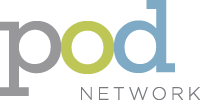The #POD23 Conference is officially in production and the Call for Proposals is now live! We are currently seeking colleagues to serve as volunteer proposal reviewers. This is a great opportunity to get involved with the POD Network community and help identify strong proposals for this year’s in person and online conferences. Please read the information below about this year’s review process and express your interest by completing the form ASAP. We encourage those newer to educational development and those whose voices are typically underrepresented in educational development to apply.
The Call for Proposal Reviewers is now CLOSED.
Envisioning the Future: Developing Equitable Opportunities for Success
Educational Developer success → Faculty success → Student success
Call for Proposal Reviewers
Expectations & Guidelines
What does the review process look like?
Reviewers will be assigned to proposals that are aligned with their self-selected areas of expertise. Each proposal will be reviewed by three individuals in an anonymous review process. Reviewers will score each proposal based on the criteria in the rubric and provide comments and constructive feedback that explain the rationale behind their scoring. Each reviewer will receive up to seven proposals.
What can you expect from reviewer training?
As we strive for continuous improvement to the proposal review process, all POD Network Conference proposal reviewers are required to complete the reviewer training. Reviewers who have completed past years’ training will have the choice to complete the full training again OR an abbreviated training with information on this year’s revisions. This onboarding process consists of an experiential learning video that will: a) inform reviewers of how to provide constructive feedback that is grounded in the review criteria and POD Network values, and b) learn to identify bias, microaggressions, and negative comments.
Reviewers may complete the training at their own pace. The 33-minute training video is online; an additional 1 to 1.5 hours should be set aside to reflect on the prompts in the video and worksheets. You will need to complete the reviewer training by April 30 to be assigned proposals. Training will open April 20.
What are a few of the benefits associated with being a proposal reviewer?
Proposal reviewers play an integral role in the quality of the POD Network Annual Conference. You will have an opportunity to:
- Gain new perspectives and learn different ways of thinking about a broad range of topics in educational development.
- Deepen your sense of connection and belongingness to the POD community as you envision yourself as part of the team that is committed to enhancing the overall quality of the POD Conference.
- Learn how to offer constructive feedback in relation to the review criteria and the POD values of collaboration, equity, and evidence.
- Share your recommendations on proposals that may ultimately strengthen prospective presenters’ work and further advance their scholarship in the field of educational development.
Proposal Topics
In the proposal reviewer sign-up survey, you will be prompted to enter the proposal topics that reflect your areas of expertise. The categories are as follows:
- Adjunct/Part-time Faculty Development: Sessions on research, programming, and development focused on the unique needs and contexts of contingent faculty.
- Assessment: Practices and methods for measuring the effectiveness of educational development programs and services, and assessment of student learning, including processes for documenting and reporting the outcomes of these measurements.
- Development of Educational Developers: Sessions focused on improving or enhancing our own pedagogical practices (e.g. active learning, contemplative practices, inclusive teaching, etc.) and/or personal/professional growth (such as research, writing for publication, leadership, mentoring) at all career stages.
- Diversity, Equity, Inclusion, & Justice: Sessions focused on policies and strategies that advance social justice, equity, and inclusion (such as UDL, anti-racist pedagogy, decolonization of the curriculum, etc.). For example, creating, advancing, and sustaining equitable organizational structures; building capacity within centers and/or among members; and/or affirming the voices, identities, and experiences of those who are typically under-represented in educational development specifically, or in general, historically marginalized populations in higher education.
- Graduate Student Professional Development: Sessions focused on the needs surrounding developing graduate students as both educators and educational developers.
- Online and/or Hybrid Teaching & Learning: Sessions about teaching with technology, supporting online course design and development, and programs that support these efforts.
- Organizational Development: Presentations that discuss the development of institutional initiatives and the role of educational development units as drivers or facilitators of change management within institutions and organizations.
- Research & Scholarship: Systematic investigations of educational development, teaching, and learning, using rigorous data collection and analytic methods; including the Scholarship of Teaching and Learning (SoTL), Discipline-Based Educational Research (DBER), Scholarship of Educational Development (SoED), and Learning Analytics.
- Running a CTL: Establishing and growing centers, programs, projects, organizations, and/or managing center operations. Programs and services offered by educational developers in centers and other units (e.g., workshops, institutes, learning communities, certificates, awards, and other types of recognition), as well as the strategic plans and curricula that provide guidance and structure to those programs. May include issues related to funding, grants, financial matters, and staffing.
- Teaching & Learning in Practice: Discussions, models, and reflection on teaching and learning methods, processes, theories, and techniques, such as evidence-based teaching practices, cognitive learning science, mindfulness and contemplative pedagogy, assessment of student learning, and the like. Can be discipline-specific (STEM, healthcare, humanities, arts, etc.) or audience-specific (adjunct faculty, graduate students, etc.)
Reviewer Expectations
Reviewers will
- complete this year’s reviewer training;
- score 5–7 proposal submissions within the timeframe provided; and
- be a current POD Network member.
If you have questions about the roles, responsibilities, reviewer training, or anything else, you are welcome to reach out to [email protected].
Important Dates
- Sign up to be a reviewer: ASAP
- Complete reviewer training: April 20-30
- Proposals assigned to reviewers: Before May 3
- Reviews completed: May 15
- Acceptance notifications: End of June

